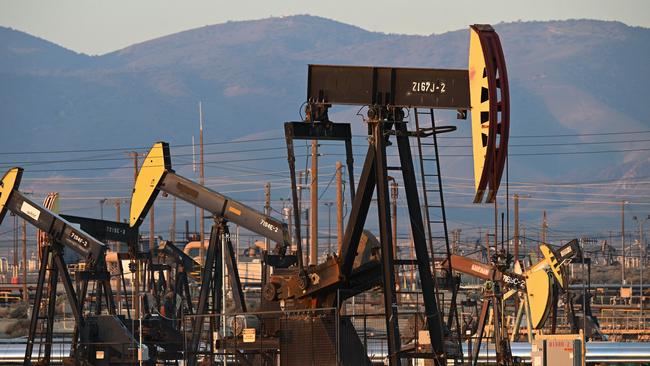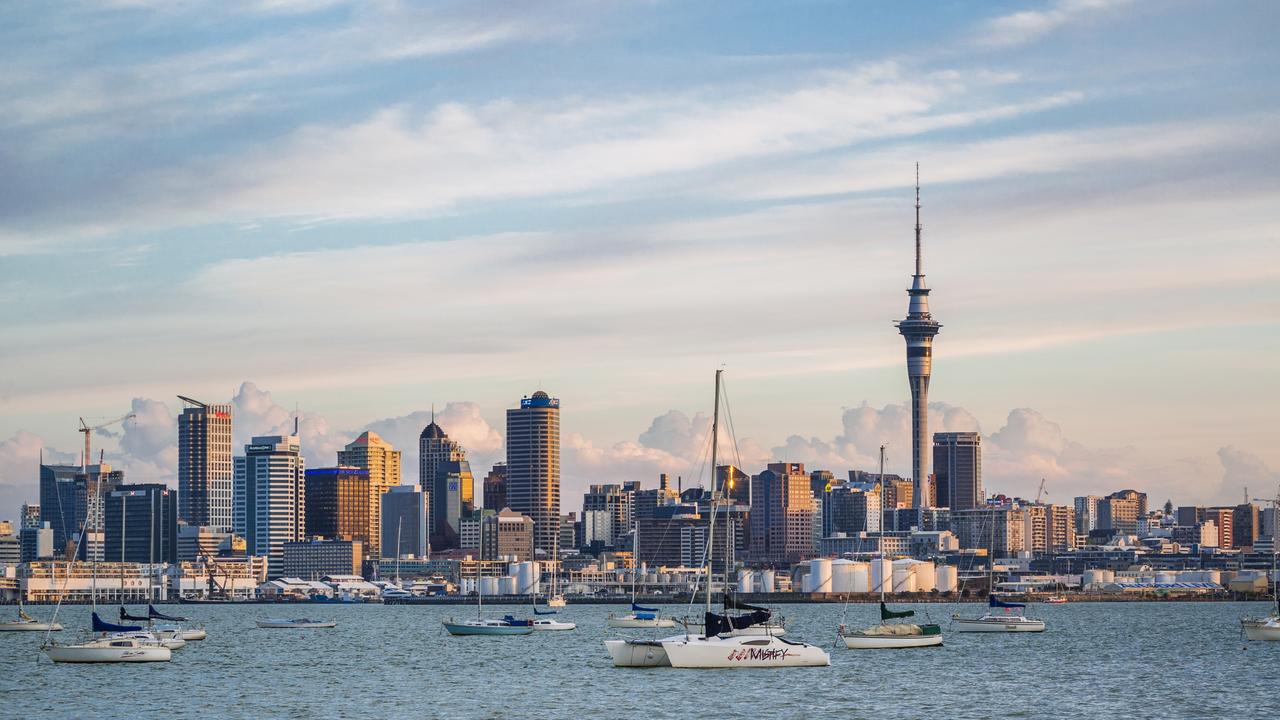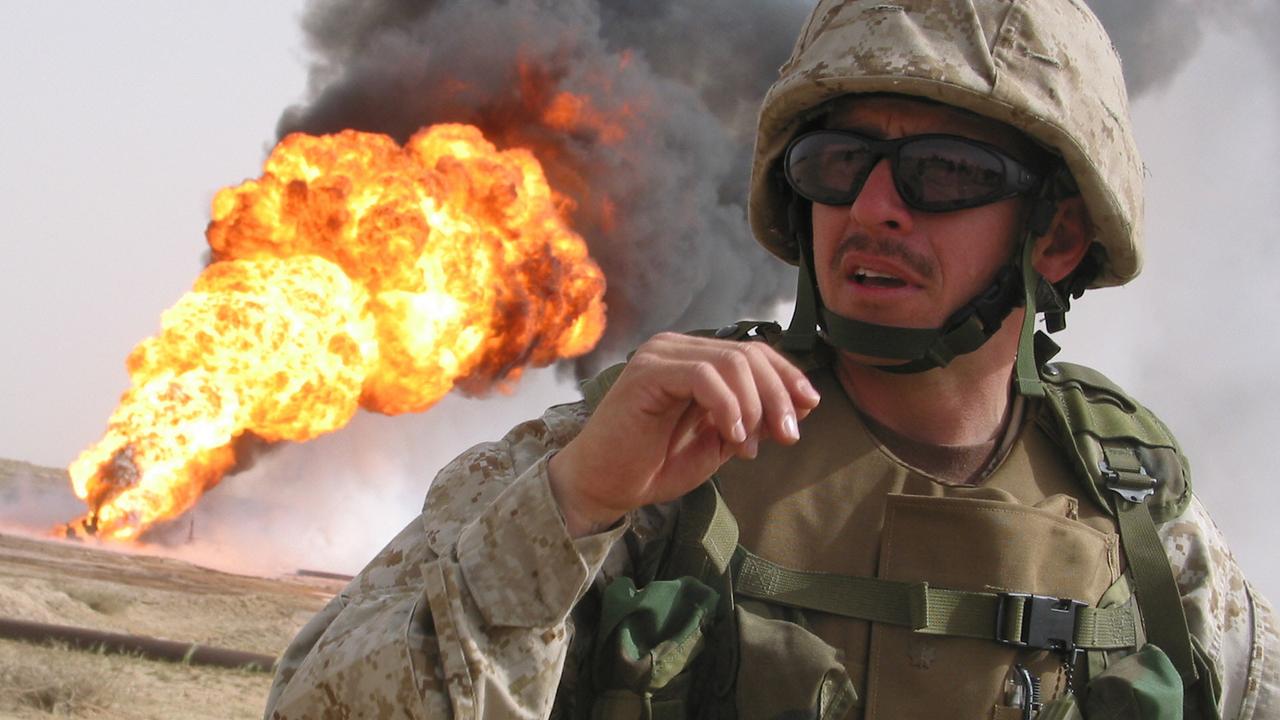Oil prices set to retest all time records on US threat
Bouncing crude prices threaten to push inflation higher, punishing everyone from motorists to listed companies.

Oil prices are threatening to reach their highest ever level after crude jumped another 10 per cent – a renewed surge following news the US was discussing the ultimate trade sanction against Russia, a ban on oil imports.
After rising by more than 20 per cent last week there were some signs of oil prices flattening in recent sessions, but a bounce in the key European price – Brent crude – to hit $US139 means the $US147.50 record set in July 2008 is now within sight.
Oil costs for Australian consumers are retesting $2 a litre, while Australia Post became the first major company to hit consumers with a Ukraine-linked extra cost, announcing a lift in its fuel surcharge from 2.3 per cent to 3.1 per cent.
The combination of oil shock and Queensland floods have further boosted local inflation fears – AMP Capital said it had increased its inflation expectations, with the group now expecting the annualised rate to hit 5.1 per cent in June, up from 4.4 per cent.
Crude oil prices spiked after it became clear that senior US Democrats support a ban on Russian oil imports. Russia is responsible for 17 per cent of total global gas exports and 12 per cent of oil exports.
US Secretary of State Antony Blinken said: “We are now talking to our European partners and allies to look in a co-ordinated way at the prospect of banning Russian oil.”
Industry analysis suggests that oil is likely to cross the $US147 all-time high to trade over $US150 in the near future. This would bring petrol at the bowser up near $2.20 a litre.
Traders predict oil must actually go higher before it encounters so-called demand destruction, where consumers start to switch their habits to consume less petrol in cars and related transport.
Diana Mousina, senior economist at AMP Capital, said: “So far, sanctions on Russia have excluded energy. But while the war continues, the uncertainty around supply will keep commodity prices high. There is also a big risk of Russian gas supply becoming completely cut off from Europe if the conflict escalates, which would cause even further price rises.”
However, oil is an extremely difficult commodity to predict despite strong data on supply. The data on demand is never as reliable. Separately, future moves by key oil-producing stakeholders such as the Organisation of the Petroleum Exporting Countries remain unclear.
Adam O’Connor, distribution manager at BetaShares in a note on Monday, said the announcement by the International Energy Agency that it would be releasing 60 million barrels of emergency oil reserves “covers only a third of a one-month disruption to Russian seaborne oil”. He added: “The only other potential short-term supply response available would be from OPEC, which would come at the expense of a ‘complete depletion’ of the global oil market’s spare capacity, potentially pushing prices further higher.”
Under such conditions, oil – and the wider sharemarket – will remain volatile as the invasion of Ukraine plays out in the coming weeks.
Though the ASX registered another loss-making session on Monday, oil stocks moved sharply higher, led by Woodside, the largest, which rose by 9 per cent to reach a two-year high.
Prices also lifted for Santos and a string of smaller companies such as Karoon Energy.
The best known pure play oil-based exchange-traded fund in the market – BetaShares’ OOO product – lifted by 15 per cent in a single session. The $295m fund is a hedged crude oil futures fund.
On the flip side, stocks linked with fuel consumption were again hit in the opening session of the week. Qantas lost 8 per cent, Flight Centre fell 6 per cent, while the four-wheel-drive accessories stock ARB fell more than 4 per cent.
Separately, fund managers are reporting a lift in investor activity seeking to join the wider institutional move to dump or avoid Russian stocks, which has been led by the Future Fund along with Aware Super, Australian Retirement Trust, Rest and Cbus in recent days. The Future Fund announced it would seek to wind down its $200m portfolio of Russia-linked assets.
Sam Kerr, a financial adviser at Nucleus Wealth, said: “We have seen a lift in investors wanting to ensure they are not invested in Russia and it’s possible to do that with ethical screening.”
Among the ethical screens run by Nucleus is a fund that benchmarks against the Democracy Index, where 167 countries are scored on democracy indicators. In the current version of the index, Russia is ranked 124th. China is ranked 148th and Australia is ranked ninth.



